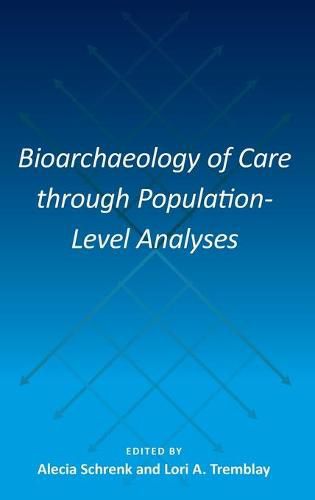Readings Newsletter
Become a Readings Member to make your shopping experience even easier.
Sign in or sign up for free!
You’re not far away from qualifying for FREE standard shipping within Australia
You’ve qualified for FREE standard shipping within Australia
The cart is loading…






This title is printed to order. This book may have been self-published. If so, we cannot guarantee the quality of the content. In the main most books will have gone through the editing process however some may not. We therefore suggest that you be aware of this before ordering this book. If in doubt check either the author or publisher’s details as we are unable to accept any returns unless they are faulty. Please contact us if you have any questions.
Representing current and emerging methods and theory, this volume introduces new avenues for exploring how prehistoric and historic communities provided healthcare for their sick, injured, and disabled members. It adjusts and expands the bioarchaeology of care framework, a way of analyzing caregiving in the past designed for individual case studies of human skeletal remains, to detect and examine care at the population level.
Covering a range of time from the Archaic period to the present, contributors discuss community settings including British hospitals and nursing homes, a shell burial mound site in Alabama, and the Mississippi State Asylum. These essays offer insights into the care given to children and those with reduced mobility, the social burden of healthcare, practices of euthanasia, and the relationship between care for the mentally ill and structural violence.
A necessary extension to our understanding of the complexities of caregiving in the past, Bioarchaeology of Care through Population-Level Analyses shows that it is important to recognize the impact of disease or disability on both the individuals affected and their broader communities. Contributors demonstrate that flexibility in bioarchaeological modeling and methodology can result in robust and nuanced scholarship on caregiving in the past and the societies that provided that care.
$9.00 standard shipping within Australia
FREE standard shipping within Australia for orders over $100.00
Express & International shipping calculated at checkout
This title is printed to order. This book may have been self-published. If so, we cannot guarantee the quality of the content. In the main most books will have gone through the editing process however some may not. We therefore suggest that you be aware of this before ordering this book. If in doubt check either the author or publisher’s details as we are unable to accept any returns unless they are faulty. Please contact us if you have any questions.
Representing current and emerging methods and theory, this volume introduces new avenues for exploring how prehistoric and historic communities provided healthcare for their sick, injured, and disabled members. It adjusts and expands the bioarchaeology of care framework, a way of analyzing caregiving in the past designed for individual case studies of human skeletal remains, to detect and examine care at the population level.
Covering a range of time from the Archaic period to the present, contributors discuss community settings including British hospitals and nursing homes, a shell burial mound site in Alabama, and the Mississippi State Asylum. These essays offer insights into the care given to children and those with reduced mobility, the social burden of healthcare, practices of euthanasia, and the relationship between care for the mentally ill and structural violence.
A necessary extension to our understanding of the complexities of caregiving in the past, Bioarchaeology of Care through Population-Level Analyses shows that it is important to recognize the impact of disease or disability on both the individuals affected and their broader communities. Contributors demonstrate that flexibility in bioarchaeological modeling and methodology can result in robust and nuanced scholarship on caregiving in the past and the societies that provided that care.